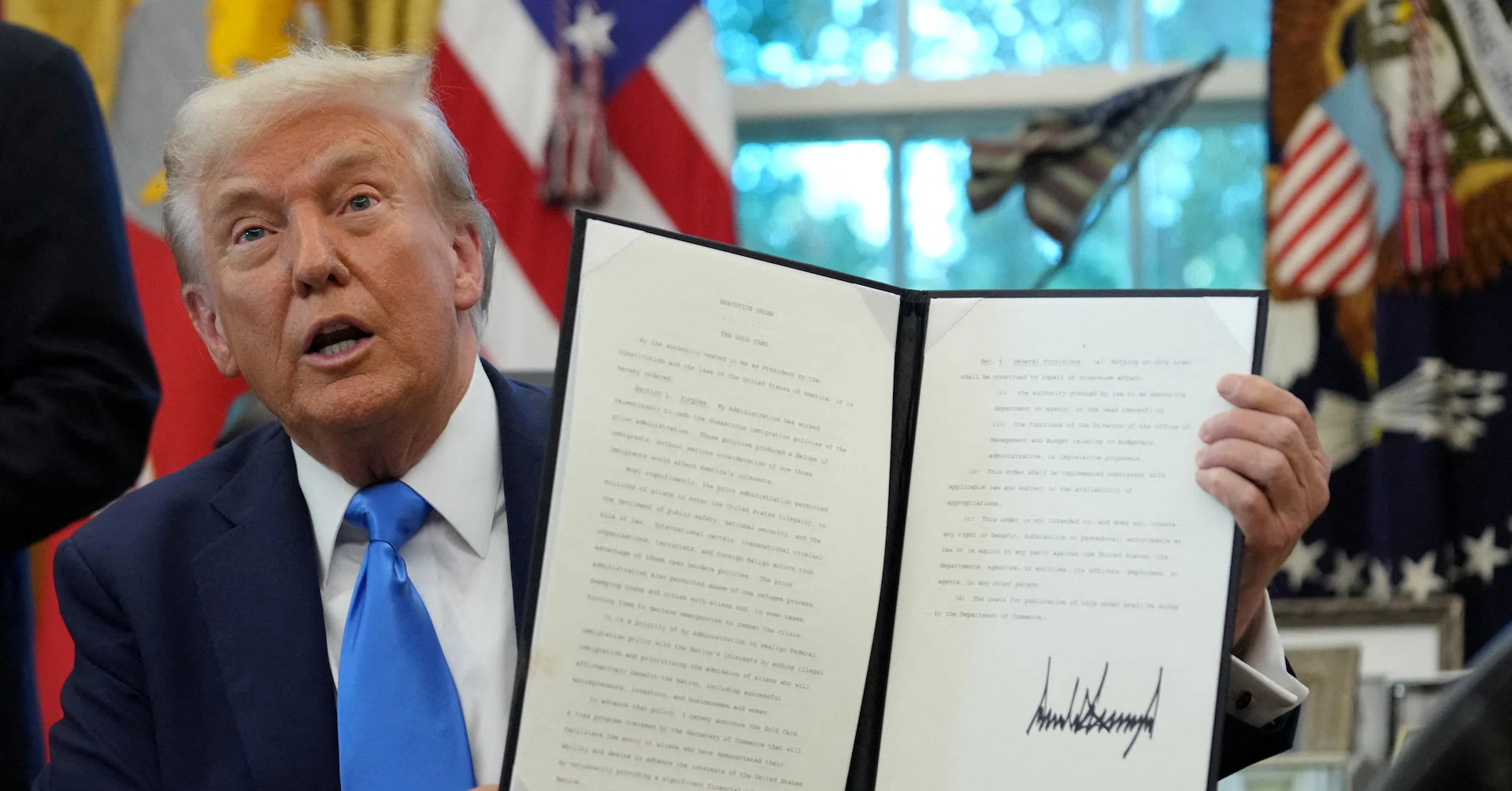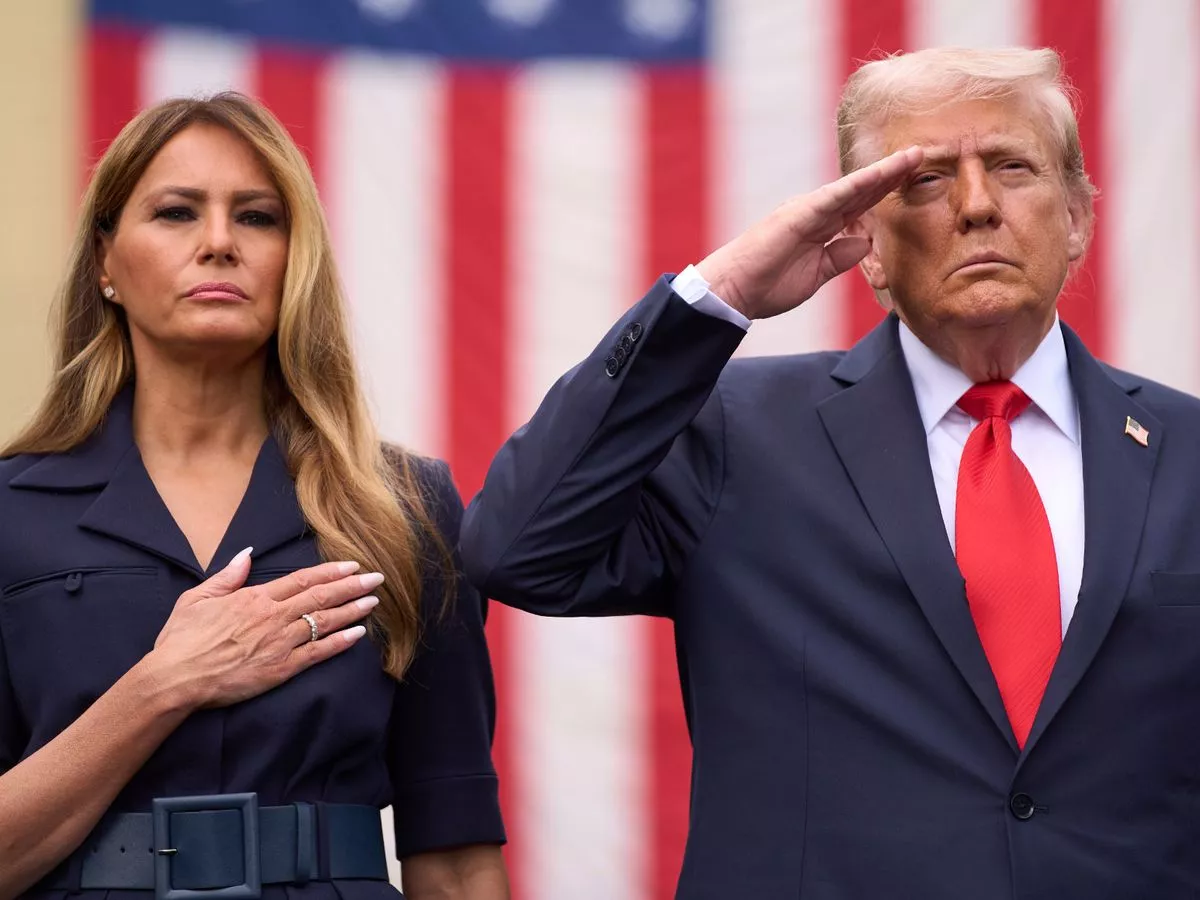
HONG KONG/MUMBAI, Sept 22 (Reuters Breakingviews) – What helps make some American companies exceptional is that they’re able to hire the best talent in the world. Donald Trump’s decision to slap a $100,000 fee on new applications for H-1B visas – used to bring highly skilled and talented workers into the country to work for Amazon.com (AMZN.O), opens new tab, Microsoft (MSFT.O), opens new tab, Meta Platforms (META.O), opens new tab, Apple (AAPL.O), opens new tab and others – poses a risk to that equation. But the U.S. president has allowed himself enough loopholes to avoid such an adverse outcome.
The war on H-1B visas opens a new front in Washington’s anti-immigration push, but it is not a jolt from the blue. For years, Indian IT outsourcing companies operating in the U.S. have in particular come under fire for using the visas to hire lower-paid foreign technology engineers instead of hiring Americans. That has started to change, though. Tata Consultancy Services (TCS.NS), opens new tab, the second-largest user of the program this year, has 5,505 employees on the visas, half its 2021 peak. Yet while Indian nationals hold 71% of H-1Bs, U.S. companies dominate the top 10 sponsors.
Sign up here.
The short-term financial impact will be limited, especially after the White House hastily clarified over the weekend that the fee only applies to new applications, not existing visas. Even if it were retroactive, the upfront cost for JPMorgan (JPM.N), opens new tab, for example, would be equivalent to 0.4% of its full-year profit. Spread the cost over three to five years of an employee’s term, and the $100,000 fee is a tolerable cost for hiring the best and brightest. For TCS, it would be up to 10%.
In practice, companies are likely to respond to Trump’s order in two main ways. First, they will double down on offshoring work, where possible. Absent any move by Washington to tax outsourcing payments, India, the Philippines and Mexico could be top potential beneficiaries. Though companies need a minimum mass of talent in close proximity to their projects to execute them smoothly, there was a massive trend toward offshoring during the COVID-19 pandemic which busted myths about where people need to be to perform certain tasks.
Second, companies will aggressively pull forward their adoption of artificial intelligence to optimise their workforce requirements. If a company was using 10 people with H-1B visas on a project, they might hire five and use the latest innovations in AI to see if they can make up for the lack of availability of talent. That would be the opposite outcome to Washington’s intention to prod employers to hire American science, technology, engineering and mathematics graduates to tackle domestic unemployment among this cohort.
Trump has taken different sides on H-1B visas over the years, siding at times with his tech advisers or with his Make American Great Again political champions. His own uncertainty may explain why the president’s order contains plenty of loopholes. He has allowed the secretary of the Department of Homeland Security to grant fee exemptions if it is in the national interest, and the restrictions only apply for 12 months, unless the programme is extended.
But the overarching threat remains. America has always relied on a mixture of local and overseas talent and will pay a heavy price if the anti-immigration push becomes permanent.
Follow Una Galani on LinkedIn, opens new tab and X, opens new tab.
Follow Shritama Bose on LinkedIn, opens new tab and X, opens new tab
Context News
For more insights like these, click here, opens new tab to try Breakingviews for free.
Additional reporting by Ujjaini Dutta; Editing by Antony Currie; Production by Aditya Srivastav
Breakingviews
Reuters Breakingviews is the world’s leading source of agenda-setting financial insight. As the Reuters brand for financial commentary, we dissect the big business and economic stories as they break around the world every day. A global team of about 30 correspondents in New York, London, Hong Kong and other major cities provides expert analysis in real time.
Sign up for a free trial of our full service at https://www.breakingviews.com/trial and follow us on Twitter @Breakingviews and at www.breakingviews.com. All opinions expressed are those of the authors.
Una Galani is Asia Editor of Reuters Breakingviews, based in Hong Kong, overseeing a team of columnists across the region. She was previously in London, Dubai and Mumbai. Breakingviews is the global financial commentary brand of Reuters delivering agenda-setting insight in real time on the most important events impacting global markets and companies.
Shritama Bose, India columnist, joined Breakingviews in November 2022. She covers the financial sector and related topics from Mumbai. She was earlier a reporter at Financial Express, a top business daily newspaper, tracking the Reserve Bank of India, lenders and fintech companies. She has a bachelor’s degree in English Literature and a postgraduate diploma in journalism.



